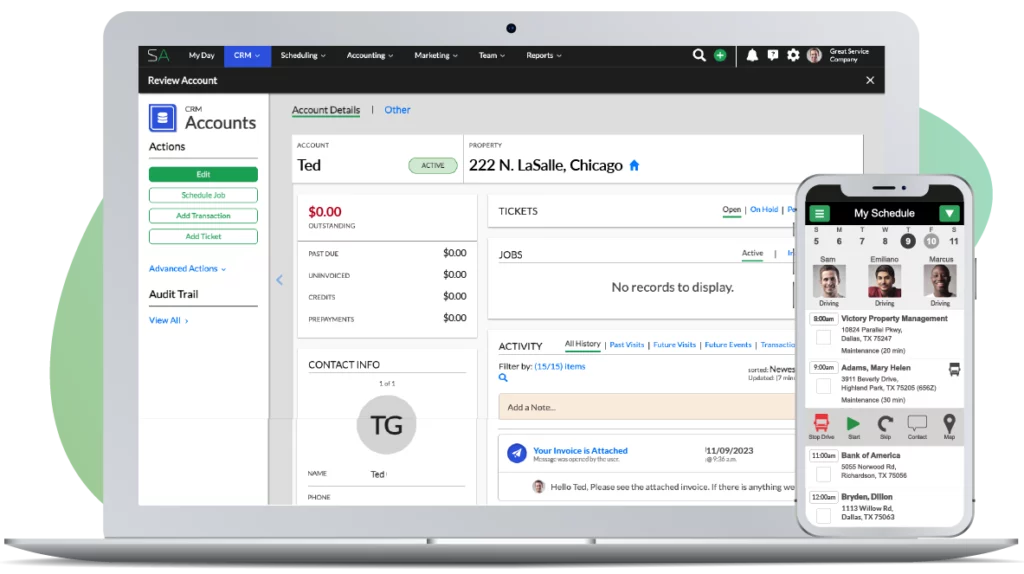This question’s from Kenny. “When I pay hourly employees, do I have to pay for travel time?”
“When I pay my employees by the hour, should I be paying them for their travel time between jobs? Do I need to pay them for the ride time between jobs? Exactly what should be included when I’m paying them by the hour?”
My perspective on this is that when you’re paying by the hour, you’re paying for every moment that they work. If you want to be within the law, you’re paying from the moment they show up at your office. You are paying them to drive to the clients’ properties as well as while they are maintaining the properties. And then, you’re paying them at the end of the day to ride back in your truck and unloading your truck. The moment they clock in to the moment they clock out, they’re getting paid.
You’ll see a model in the commercial world where they will write contracts with their employees or contractors, however they set it up, and they will pay for performing the job and not driving. I’m not sure how that fits within the law, but you will see that in the commercial side.
In this commercial model, there will be a driver of each truck and that driver is on the clock from the moment he arrives at the facility to the moment he returns to the facility to unload at the end of the day. But, the individuals in the truck with him are only being paid for any work performed at the shop and job time. They’re not being paid for drive time because their agreement stipulates that they should drive their own cars to every job and they’ll be paid for performing each of those jobs. They can hitch a free ride in the truck if they’d like, but it’s not paid time.
Before you go down a road and follow that type of model, you better be certain you’re double checking that will hold up in your state. You also need to double check that your employment agreements are written correctly and that they will hold up. I can tell you from my experiences in the cleaning industry when I used to own a company with some other partners that there were other companies that were competitors of ours that for years and years had certain payment practices of employees. When one employee became unhappy and sued them, it resulted in settlements for lots of employees.
Something creative around payroll might work out for you for 5 years but that doesn’t mean that when you do get hit, that you won’t have to make up for the many years of underpaying your employees. They don’t just slap your hands with a fine and ask you to do it right from now on. You get a fine and then have to pay a lot of back pay in payroll and taxes! Before you go down a road like that, be very cautious.
If you want to go down a road where you’re paying more for performance, then I would look at an alternative to payroll, meaning an alternative to hourly pay. I would look at piecemeal. I’d look at pay by the job, and then there’s plenty of things to consider even when you do that. You have to keep in mind overtime laws and a whole lot of other things. If you’re going to do something creative outside of just paying straight hourly time, you want to get counsel from somebody that really knows the laws in your state, to be certain that you can sleep each night and not have to worry about someday when you get hit with some big amount of money that puts you out of business. Good luck.



